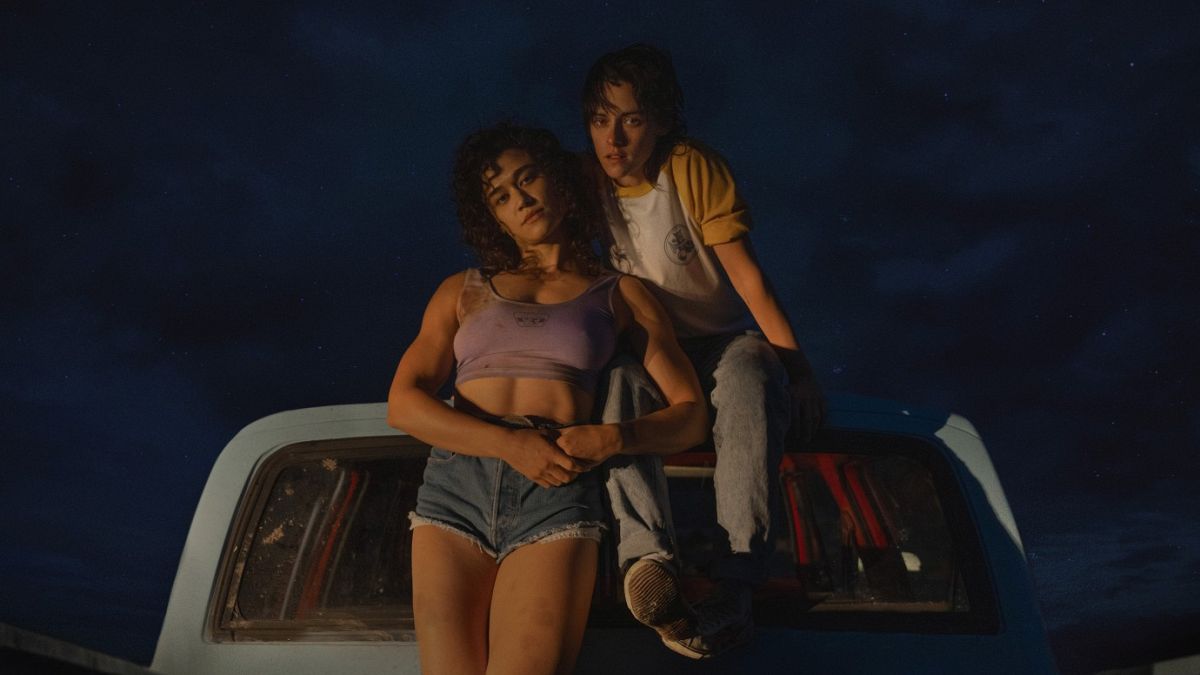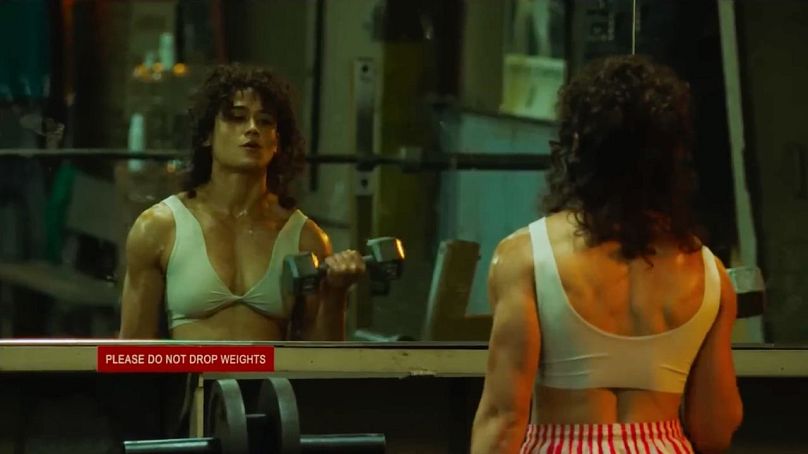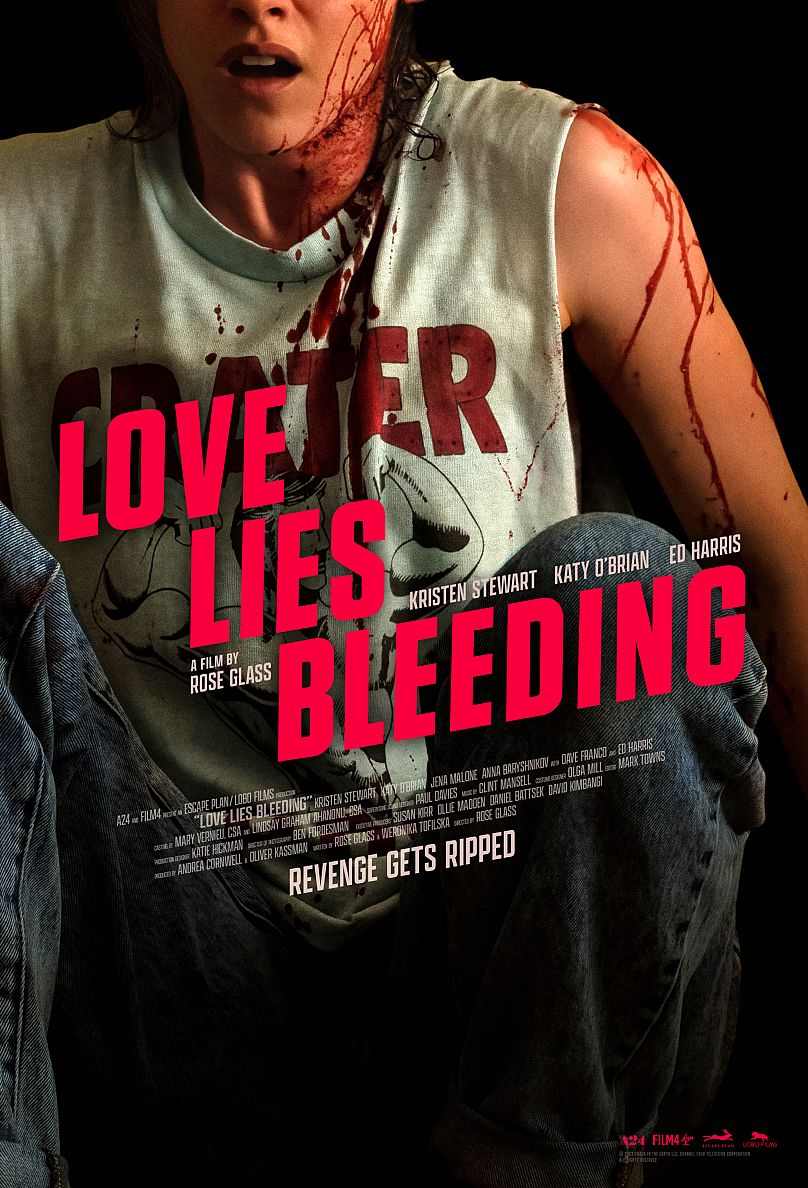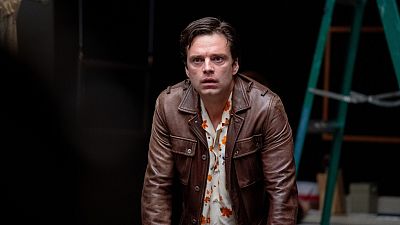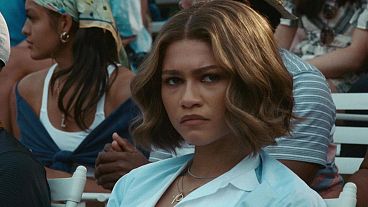Rose Glass signs an audacious, vibrant, pulpy triumph fuelled by two electric performances. She confirms she’s one of the most unique cinematic voices working today.
When stepping out of Welsh director Rose Glass’ debut feature film, 2019’s Saint Maud, I was left in a prolonged dirge that I couldn't shake off.
When the rotting fruit bowl I call a brain finally decided to resume its functions, the only think I could think to coherently gasp was: “Fuck.”
As my sweary outburst suggests, there’s something so uniquely intoxicating about discovering a new cinematic voice. But with such a layered and nerve-jangling calling card comes the risk of the dreaded sophomore slump. When I saw that Glass’ second film, Love Lies Bleeding would have its European premiere at the Berlinale, I came to the screening both excited and fearful that heightened expectations ran the risk of being dashed.
Unwarranted fears, as it turns out, as Glass’ bigger, bolder follow-up only serves to confirm that she is up there with talent like Julia Ducournau (Raw, Titane), Natalie Erika James (Relic) and Prano Bailey-Bond (Censor) as some of the most distinctive and exciting cinematic voices of this still young century.
I may not have dropped an F-bomb after walking out of Love Lies Bleeding, but I did think: What’s this not doing in Competition at this year’s Berlinale?
Genre bias? Possibly. Distribution considerations that go over my head? Perhaps. Does it matter? Probably not – and here’s why.
Love Lies Bleeding transports you back to 1980s New Mexico. There, we meet Lou (Kristen Stewart), who works a dead-end job at a scuzzy gym and who needs something more in her life. That something comes when drifter and ambitious bodybuilder Jackie (Katy O’Brian) rocks into town and goes to pump some iron. Their connection is immediate, and as their relationship blossoms, it soon hits a sizeable roadblock in the shape of Lou’s misogynistic and abusive brother-in-law, JJ (Dave Franco, sporting a douche mullet cut). He sends his submissive wife Beth (Jena Malone) to hospital, with injuries that outdo his previous beatings. Seeing Lou upset by JJ’s assault, a defensive Jackie – who has recently discovered the joys of steroids – gets roid-ragey and jaw-smashy. This sets off a chain of events which will put the couple on a collision course with Lou’s estranged father, the criminal kingpin Lou Sr. (Ed Harris).
Many reviews will categorise Love Lies Bleeding as a queer parable, or a revenge odyssey with a dash of Thelma and Louise, or even a forward-looking yet retro-feeling noir. It’s all those things, granted, but like Saint Maud, it thrillingly defies easy classification and is stronger for it.
Both of Glass’ films share a similar theme of devotion taken to the extreme, and how an overpowering emotion like faith or love can come to consume a person. Even harmfully warp their worldview.
The bare-bones scenario of Love Lies Bleeding doesn’t seem particularly original in that small-town-crime sort of way, but the unnervingly tactile execution is its own kind of electrifying. I won’t mince words: everything works. The dynamic visual tempo; the graphic violence; the way bodies are filmed, whether Hulked-out muscles at the gym or limbs entangled in perfectly lensed sex scenes; the dark sense of humour that permeates so much of the narrative; those immersive close-ups that ensure that when Glass blurs reality’s boundaries to suggest a folie à deux, you’re hooked...
I could go on, but this list schtick has its limits.
The director somehow manages to harness all these elements and create a cohesive vision. She’s not alone, mind you. Teaming up once more with Saint Maud cinematographer Ben Fordesman and editor Mark Towns, there’s a palpably pulpy and intoxicating atmosphere that buttresses Glass’ precise direction. Of particular note is Paul Davies’ textured sound design, which gives a queasily sensuous dimension to film - on top of what is destined to be one of 2024’s best soundtracks.
The cast are superb, and beyond Stewart and O’Brian’s electric turns are other memorable performances, especially by Ed Harris, looking like a menacing boiled testicle with wispy hair (I mean that lovingly), and Anna Baryshnikov as Daisy. The latter, complete with jaundiced dentures and a lovesick schoolgirl attitude is a real treat – one which unexpectedly gives the film a perfect shot for its ending.
One major talking point (which shan’t be fully spoiled here) is a rather outrageous flourish in the final act, one which was somewhat heralded by the gradual metamorphosis that Jackie experiences throughout the film.
It won’t work for everyone, but by the time it comes, it’s a delirious, Attack of the 50 Foot Woman -echoing twist that buttresses two core aspects of this exhilarating film. First, the toxic, all-American sense of extreme affirmation, previously seen in those all-too-earnest gyms signs (“Only losers quit”; “Pain is weakness leaving the body”). The story’s setting has a distinct Americana vibe to it, and a possible reading of Glass’ film is that in a country of such excess and American Dream disillusionment, it shouldn’t be surprising that all-consuming emotions are fostered. Often to violent extremes.
The second is more universal and perhaps more uplifting – a question which resides at the core of Love Lies Bleeding: What wouldn’t you do for the person you passionately love?
For better or worse, it reminds you that love is not only a drug. It’s the drug.
Thanks for hit, Rose Glass.
